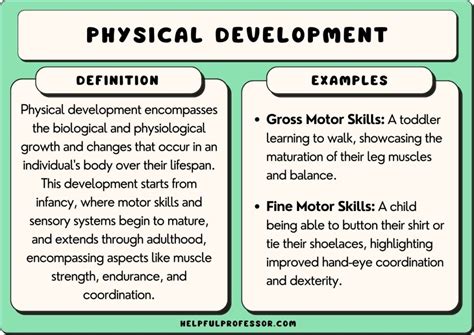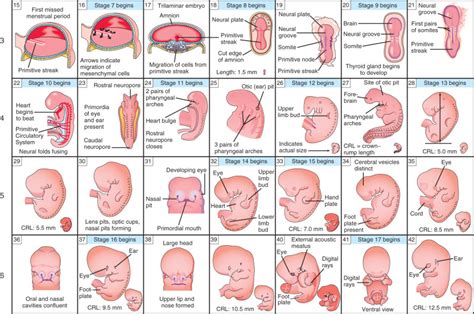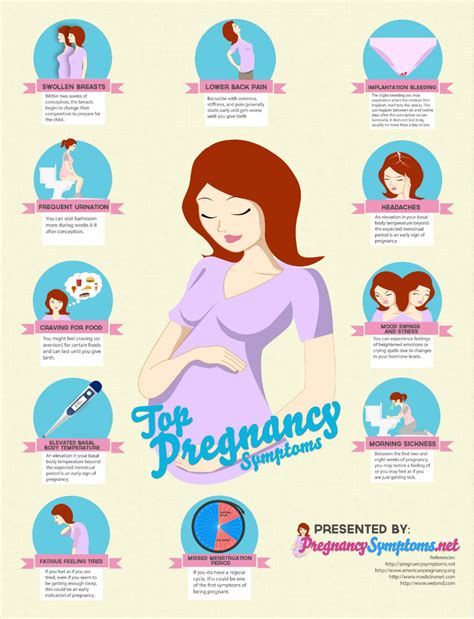Intro
Discover the remarkable 27 week fetus development stage, featuring rapid growth, sensory refinement, and vital organ maturation, with major milestones in pregnancy, fetal development, and prenatal care.
At 27 weeks of gestation, a fetus is nearing the end of its second trimester, a period marked by significant growth and development. This stage is crucial for the fetus's overall health and preparation for life outside the womb. As the fetus grows and develops, it begins to resemble a newborn baby more closely, with noticeable improvements in its physical appearance and functional capabilities. Understanding the developmental milestones at this stage can provide valuable insights for expectant parents and healthcare professionals alike.
As the fetus continues to mature, its organs and systems start to function more efficiently. The skin, which was once transparent, begins to thicken, and fat layers form, helping to regulate body temperature. The fetus's digestive system is also practicing contractions, preparing for life outside the womb where it will need to digest food. Moreover, the pancreas starts producing insulin, a crucial hormone for regulating blood sugar levels. These developments are indicative of the fetus's increasing readiness to survive independently.
The 27-week mark is also significant because it marks a point where the fetus's chances of survival outside the womb increase dramatically, thanks to advances in medical technology and neonatal care. Premature babies born at this gestational age have a higher likelihood of survival, although they may still require intensive care and monitoring. The lungs, in particular, are nearing maturity, producing surfactant, a substance that helps them expand and contract properly after birth. This reduction in the risk of respiratory distress syndrome is a critical factor in the improved survival rates of premature infants.
Physical Development

At 27 weeks, the fetus measures approximately 15 inches (38 cm) in length and weighs around 2 pounds (900 grams). Its physical development is marked by several notable changes. The skin starts to thicken, and a layer of fat forms, which helps with temperature regulation after birth. The fetus's skeleton, initially made of soft cartilage, begins to ossify, or harden into bone. This process is crucial for the structural support and protection of internal organs. The eyes, which were previously fused shut, start to open, allowing the fetus to detect light and darkness. Although the eyelids are still fused together to protect the developing eyes, the fetus can sense light and may even be able to see vague shapes.
The fetus's limbs and digits are fully formed, with toes and fingers clearly defined. The fingernails and toenails start to grow, and the skin on the feet and hands begins to thicken. The head is still slightly larger than the body, but this disproportion will correct itself as the fetus grows. Hair starts to grow on the head, and the eyebrows and eyelashes become more defined. The fetus can also swallow, kick, and even suck its thumb, demonstrating a range of motor skills.
Brain and Sensory Development
The brain of a 27-week fetus is highly active, producing electrical activity similar to that of a newborn baby. This stage is critical for neurological development, with the formation of new neural connections that will enable the fetus to process sensory information and control its movements more effectively. The fetus can detect sounds outside the womb, including the mother's voice, which it may recognize after birth. The sense of touch is also well-developed, allowing the fetus to feel movement and pressure.The eyes, though still developing, can detect light and darkness, and there is evidence to suggest that the fetus may be able to see vague shapes or colors. The fetus's sense of taste and smell is also present, with research indicating that the fetus can distinguish between different flavors and odors in the amniotic fluid. This sensory development is essential for the fetus's ability to navigate and interact with its environment after birth.
Organ and System Development

The organs and systems of a 27-week fetus are functioning more efficiently. The heart pumps blood through its chambers, and the four-chambered heart starts to develop more fully. The lungs continue to mature, producing surfactant to reduce the surface tension of water, allowing them to expand and contract properly after birth. This development is critical for the fetus's ability to breathe independently.
The digestive system practices contractions, preparing for life outside the womb where it will need to digest food. The pancreas produces digestive enzymes and insulin, regulating blood sugar levels. The liver produces bile and starts to take over some of the mother's immune functions, helping to protect the fetus from infection. The kidneys function and produce urine, which is excreted into the amniotic fluid.
Immune System Development
The immune system of a 27-week fetus starts to develop, with the production of white blood cells that will help fight infections after birth. Although the fetus's immune system is still largely dependent on the mother's immune system for protection, it begins to take on more responsibilities. The fetus's liver starts to produce antibodies, which are proteins that recognize and bind to specific foreign substances, marking them for destruction. This development is crucial for the fetus's ability to defend itself against pathogens after birth.Pregnancy Symptoms and Care

At 27 weeks of pregnancy, women may experience a range of symptoms. The growing uterus can cause back pain, pelvic pressure, and discomfort. Hormonal changes may lead to mood swings, breast tenderness, and fatigue. Women may also experience Braxton Hicks contractions, which are mild, practice contractions that prepare the uterus for labor.
Prenatal care is essential at this stage. Regular check-ups with a healthcare provider can help monitor the fetus's development and identify any potential issues early. Women should continue to follow a healthy diet, stay hydrated, and engage in moderate physical activity to support their health and the fetus's development. It's also important to manage stress and get enough rest, as high levels of stress can negatively impact the fetus.
Nutrition and Lifestyle
A well-balanced diet rich in essential nutrients is crucial for the fetus's development. Key nutrients include folic acid, iron, calcium, and protein. Women should also consider taking prenatal vitamins to supplement their diet. Staying hydrated by drinking plenty of water is important for the fetus's development and can help prevent complications during pregnancy.A healthy lifestyle is also essential. Women should avoid smoking and alcohol consumption, as these can have detrimental effects on the fetus's development. Engaging in moderate physical activity, such as walking or prenatal yoga, can help maintain physical and mental health. Getting enough sleep and practicing stress-reducing techniques, like meditation or deep breathing, can also support the health and well-being of both the mother and the fetus.
Preparation for Birth

As the pregnancy advances, it's essential for expectant parents to prepare for the birth of their baby. This includes attending prenatal classes, which can provide valuable information on labor, delivery, and postpartum care. Creating a birth plan can help outline preferences for labor and delivery, although it's essential to remain flexible, as the birth process can be unpredictable.
Setting up the nursery and preparing necessary items, such as diapers, clothes, and a crib, can also help expectant parents feel more prepared. Building a support network of family, friends, and healthcare providers is crucial for the emotional and practical support needed during this time.
Emotional Preparation
Emotional preparation is just as important as physical preparation. Expectant parents should consider their feelings and expectations about parenthood, as well as any fears or anxieties they may have. Building a strong support network and communicating openly with their partner can help manage these emotions. It's also important to prioritize self-care and make time for activities that bring joy and relaxation.The journey to parenthood is filled with excitement, anticipation, and sometimes, uncertainty. As the due date approaches, staying informed, maintaining a healthy lifestyle, and preparing emotionally can help expectant parents navigate this significant life change with confidence and joy.
What are the chances of survival for a premature baby born at 27 weeks?
+The chances of survival for a premature baby born at 27 weeks have significantly improved with advances in medical technology and neonatal care. According to the American Academy of Pediatrics, the survival rate for babies born at 27 weeks is approximately 80-90%. However, these babies may still require intensive care and monitoring due to potential health complications.
Can a fetus at 27 weeks hear outside sounds?
+Yes, a fetus at 27 weeks can detect sounds outside the womb. Research suggests that the fetus can hear the mother's voice, other external noises, and even recognize certain sounds after birth. This ability to detect sound is an important part of the fetus's sensory development and preparation for life outside the womb.
What are the most critical developments in a 27-week fetus's physical growth?
+At 27 weeks, critical developments in physical growth include the thickening of the skin, the formation of fat layers, and the ossification of the skeleton. The fetus's limbs and digits are fully formed, and the eyes, though still developing, can detect light and darkness. These physical developments are essential for the fetus's preparation for life outside the womb and its overall health and well-being.
As we reflect on the remarkable development of a 27-week fetus, it's clear that this period is pivotal in the journey to birth and beyond. The intricate processes of growth, the maturation of organs and systems, and the preparation for independent life all underscore the complexity and beauty of human development. For expectant parents, understanding these developments can foster a deeper connection with their unborn child and enhance their anticipation of the joy that parenthood will bring. We invite readers to share their thoughts, experiences, and questions about fetal development at 27 weeks, and we encourage expectant parents to reach out to their healthcare providers with any concerns or queries they may have.
